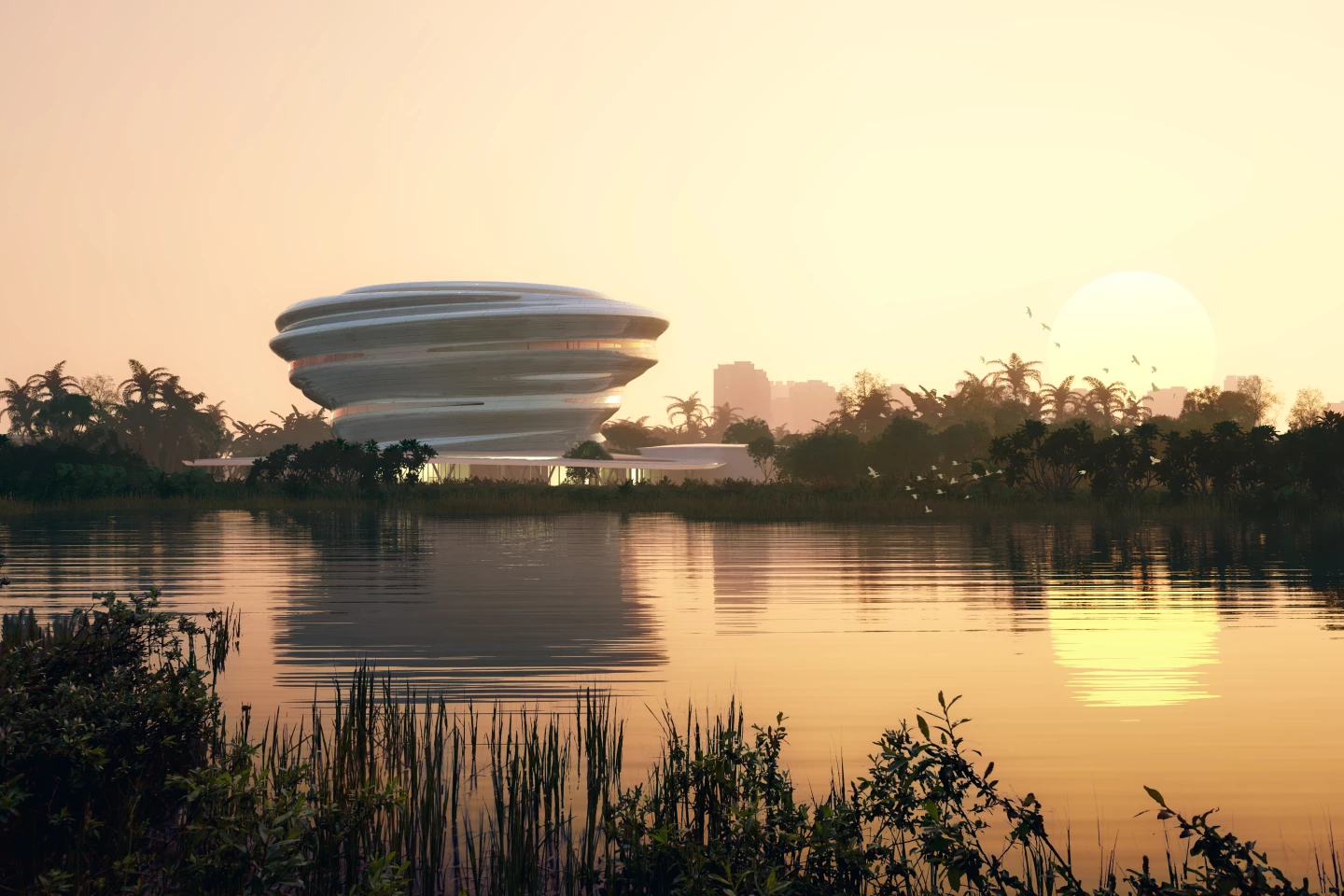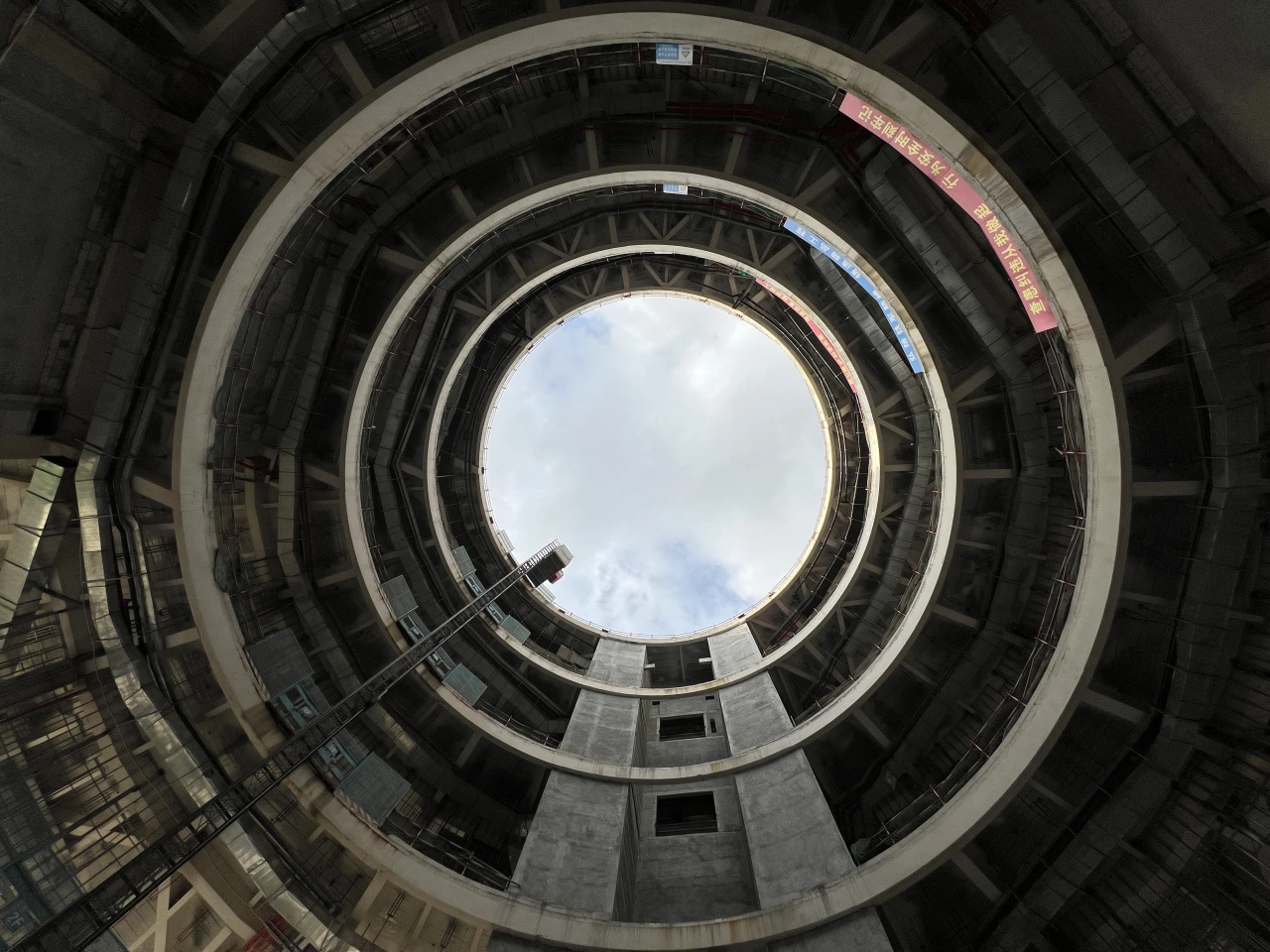A large cloud is forming in tropical China, however it's not the work of nature, but a new museum conceived by one of the world's most important architecture firms, MAD. Named the Hainan Science Museum, the project is due to be completed in 2025.
It's always fascinating to see unusual designs make the jump from digital images into an actual building and – credit where it's due – the Hainan Science Museum looks to be shaping up to look like its original proposal.
Conceived as an updraft of warm air rising from the Earth's surface to form a cloud, its curving exterior is realized with 843 individual pieces of silver-colored fiberglass-reinforced plastic. Specially designed to meet the demanding local tropical climate, the plastic facade sections include open seams and water-guiding grooves for drainage. They are in turn anchored by a steel framework and concrete, with a particular focus on efficiency and reducing waste.
"The shapes and structure of the Hainan Science Museum have been carefully designed to avoid unnecessary space and materials," says MAD. "The core, floor plates and main structure are directly connected with the curved facade, ensuring efficient use of resources. The design optimizes everything to reduce waste including integrating circulation and function layout with the building structure."

The interior, meanwhile, is likened to a DNA Helix by MAD. It measures 46,000 sq m (almost 500,000 sq ft) and is spread over five floors, plus a basement level. It's arranged as a descending ramp, from top to bottom, with a large skylight at its center ensuring daylight permeates within.
Visitors to the museum will begin their journey by taking an elevator from the entrance to the top floor and then embark on a gentle decline, journeying around the winding interior ramp and taking in curated views of a lush landscaped garden on the right and gallery spaces on the left.

The Hainan Science Museum began construction in 2021 and is part of a huge development push in the popular tourist area of Hainan, that also includes MAD's spaceship-like library. Additionally, over in the United States, the firm's much-anticipated Lucas Museum of Narrative Art is nearing completion and expected to open in 2025.
Source: MAD











